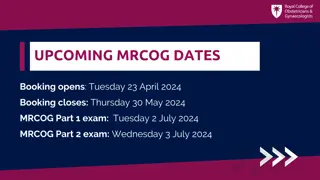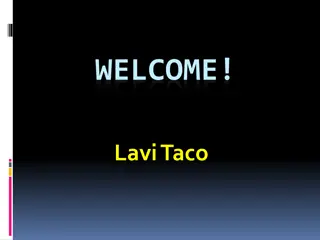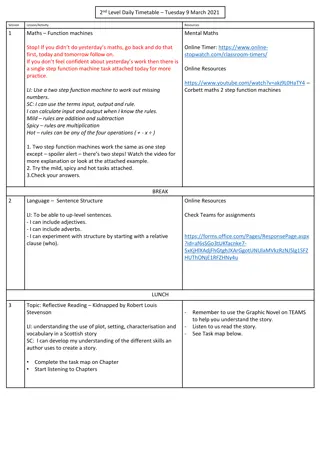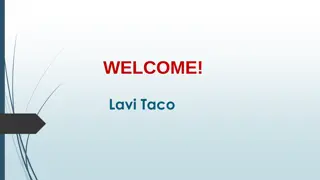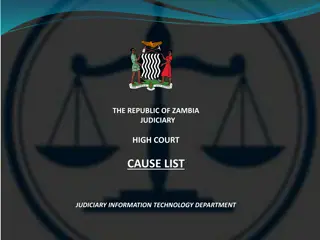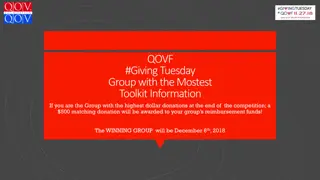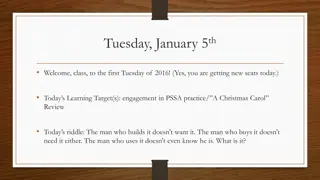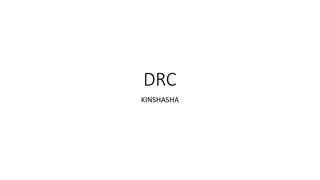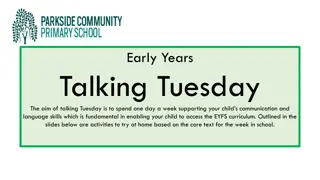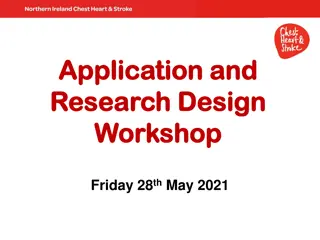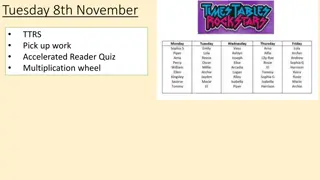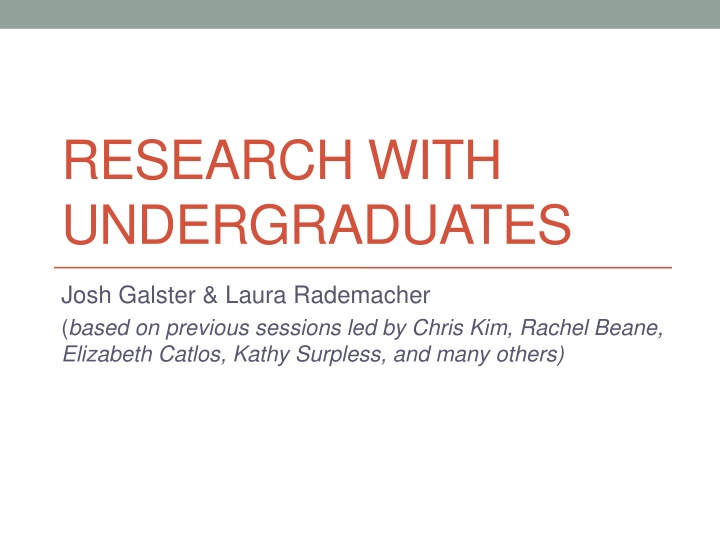
Empowering Undergraduates Through Research Opportunities
Explore the world of undergraduate research with Josh Galster, Laura Rademacher, and other educational leaders. Discover the motivations, benefits, challenges, and goals of involving undergraduates in research projects. Learn about the different types of undergraduate research opportunities available and the process versus outcomes of successful research experiences.
Download Presentation

Please find below an Image/Link to download the presentation.
The content on the website is provided AS IS for your information and personal use only. It may not be sold, licensed, or shared on other websites without obtaining consent from the author. If you encounter any issues during the download, it is possible that the publisher has removed the file from their server.
You are allowed to download the files provided on this website for personal or commercial use, subject to the condition that they are used lawfully. All files are the property of their respective owners.
The content on the website is provided AS IS for your information and personal use only. It may not be sold, licensed, or shared on other websites without obtaining consent from the author.
E N D
Presentation Transcript
RESEARCH WITH UNDERGRADUATES Josh Galster & Laura Rademacher (based on previous sessions led by Chris Kim, Rachel Beane, Elizabeth Catlos, Kathy Surpless, and many others)
Overview Your motivation Goals for undergraduate research Types of undergraduate research Who are undergraduates? Approaches to project design Outcomes & preserving knowledge Your plan for success
Your Motivation What are the benefits of undergraduate research? In other words, why involve undergraduates in your research? What are the challenges and pitfalls of working with undergraduates in research?
Goals for Undergraduate Research What do you want students to gain from the research experience?
Goals for Undergraduate Research Advance knowledge of discipline and/or result in new scholarly and creative works Students learn ways of the discipline process is as important as outcome challenge to pose and answer meaningful questions develop quantitative, problem-solving, and presentation skills Enliven intellectual climate on campus stimulate discussion & collaboration within/across disciplines increase # of high quality interactions between students & faculty outside of classroom
Types of Undergraduate Research Research as part of an undergraduate class (another session here on this!) Summer research Independent study / honors thesis research
Successful Undergraduate Research: Process vs Outcome Learning experience for student Provide student with guidance to understand significance of problem/question, practice methods, and execute project Facilitate communication between student & professor Investigate significant rather than trivial problems May lead to class presentations, senior theses, conference presentations, contributions to papers
Undergraduate Students Are: Less experienced More time-intensive Overcommitted With you for shorter timeframes Distracted Naive Eager Fast learners Affordable Searching Rewarding
Recruiting, Selecting, and Contracts Recruiting: You are the best advertisement! Formal: ads, emails, events, & webpages Informal: Word of mouth, class announcements, approaching good candidates directly Selection Academic criteria: GPA, class and lab experience Time available and compatible schedules Compensation: salary, credit, volunteer Research Contracts Explicit expectations for both student & advisor
Designing Doable Projects Consider: time allotted (as an estimate, multiply x3 or more!...the time it would take you to complete a step) student s ability and motivation student s & your other responsibilities
Undergraduate Research Approach Work on piece of mentor s larger research project(s) Work on projects of their own design Work on research topics of peripheral interest to mentor s research Work on continuing previous projects Students at different levels involved in research team Students complete research within class context Students complete research as part of structured Honors Program (or similar)
Project Design Approach Multi-student, multi-year project Students work on different pieces of larger project Example: Wildfire impacts on watershed processes Field water chem Lab water analysis Field sediment analysis Sediment lab analysis Field biology analysis Lab biology analysis Multiple watersheds Discharge analysis Historic records
Project Design Approach Adapting research to local field areas Develop field-based program close to campus for class & summer Foster balance between family, research, teaching Example: Investigating urban water pollution Field water chem Lab water analysis Sediment collection & observations Sediment chem analysis Field biology analysis Lab biology analysis
Project Design Approach Adapting research for inclusion in a course Exposes many more students to research practices Example: place sensors at beginning of semester Collect data throughout Analyze data as part of syllabus Have a final product
Outcomes & Preserving Knowledge Presentations Abstracts Posters and/or Talks Symposia & Professional Technical meetings Networking Theses Publications Multiple student researchers may be needed Have them write the straightforward parts: Methods, Results, Figures Knowledge Preservation Lab books & wiki File-sharing and backups
Your Suggestions & Questions? How have you designed projects for undergraduate researchers? What questions do you have about designing projects and working with undergraduates?
Design Your Project! Keep in mind: Topic Goal Number of students involved Recruitment method Scale Expected outcome
Some Resources Undergraduate research: http://serc.carleton.edu/introgeo/studentresearch/index.ht ml Collaborating with students: http://serc.carleton.edu/NAGTWorkshops/earlycareer/rese arch/students.html#thoughts Guidelines for students: http://serc.carleton.edu/NAGTWorkshops/earlycareer/rese arch/students.html#guidelines Advisor, Teacher, Role-Model, Friend: On being a mentor to students in science and engineering (full text online): http://www.nap.edu/openbook.php?record_id=5789


